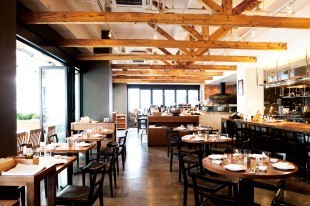Kijun Times
Kijun Times 는 교내 영어잡지,신문 동아리로 다양한 주제에 관한 이슈로 원고를 작성하며 영어 잡지를 만드는 동아리입니다.
매년 잡지 출판뿐만 아니라 자신의 진로와 관련된 개인기사, 모둠기사를 작성함으로써 영어 실력향상은 물론 주제에 제한이 없기 때문에 다양한 진로에 접목 가능합니다.
We are looking for a new journalist for The KIJUN TIMES.
Anyone can be a journalist for The KIJUN TIMES.

[Weekender] Conglomerates go head-to-head in casual dining |
|||||
|---|---|---|---|---|---|
| 이름 | 임서영 | 등록일 | 16.08.21 | 조회수 | 608 |
 The Kitchen Salvatore Cuomo run by Maeil Dairies Industry Co. (Maeil Dairies Industry Co.) The Kitchen Salvatore Cuomo run by Maeil Dairies Industry Co. (Maeil Dairies Industry Co.)Competition for customers at Seoul’s various casual premium restaurants is fierce, with restaurants opened up by owner-executives of Korea‘s largest corporations aggressively seeking to set trends and gain international clout. The battle features some formidable names, including CJ’s Lee Jay-hyun and Shinsegae’s Chung Yong-jin. CJ Group’s restaurant operator CJ Foodville is undoubtedly the oldest and best established in casual dining. Its buffet and steak house VIPS has long become a household name since it burst onto the restaurant scene in 1997. Today, the company holds 12 brands that operate both in Korea and abroad, each representing a different style of casual dining. The portfolio includes a steak house, a dessert-focused cafe, a bakery and a Korean food buffet. Now, the company is facing stiff competition from other companies that are bringing in popular brands from abroad or developing trendy dining brands of their own on the orders of the companies’ second generation of owner-executives. “Food is a very cultural thing,” Sookmyung Women’s University business professor Seo Yong-gu told The Korea Herald. “So by bringing in these restaurants, these corporate owners were able to introduce cultural aspects that they saw abroad into the Korean market.” Perhaps the most notable example is Chung Yong-jin, the vice chairman of Shinsegae Group. In 2014, Shinsegae Food opened a craft beer pub called Devil’s Door, a project conceived and directed by Chung himself. Well-known for his penchant for good drinks, Chung recruited a task force to write up the menu, complete with burgers, salads and sides to go with the specially crafted beers. Along with the trendy Devil’s Door, Shinsegae Food also operates a slew of brands including an international buffet chain called Bono Bono, the Korean branches of ’50s-themed American burger chain Johnny Rockets and the Korean restaurant Olbaan. Another owner-executive famous for bringing his personal love of food to business is CEO Kim Jung-wan of Maeil Dairies Industry Co. Kim, who is well-known in the business world for his wide knowledge of the best dining spots abroad, brought in the star chef brand Salvatore Cuomo to Korea in 2009 and opened the premium coffee franchise Paul Bassett here the same year. When Shake Shack arrived in Seoul last month, it was the brainchild of SPC Group’s third-generation owner-executive Senior Managing Director Hur Hee-Soo. Despite high interest on the side of conglomerates, however, the outlook for their premium restaurants in Korea is far from rosy. The sluggish economy and the rise of people choosing to eat alone have both contributed to overall slow growth in dining, but for restaurants run by large conglomerates, it’s even rougher. Government regulations designed to even the playing field for smaller companies restrict conglomerates from opening up restaurants in strategic areas. Those regulations were renewed for another three years in May. According to a report from analyst Cho Sang-hoon of Samsung Securities, Shinsegae Food has been seeing three years of losses in its restaurants and is looking to close money-losing branches to improve profitability. Family restaurants like Bennigan’s and Outback Steakhouse have also lost their luster in Korea and are rapidly moving out of the market. According to professor Seo, the target demographic of casual premium dining restaurants is now moving to a younger group. “The restaurants are targeting people in their 20s and 30s, people who are young and like to follow trends,” he said. “There is a pretty solid block of younger consumers in Korea now who are willing to pay around 30,000 won per meal. But you have to appeal well to them.” Despite the high costs and restrictions, however, professor Seo says that these companies are not likely to let go easily of their restaurants because of their marketing value. “Not only is it a chance to plant a trendy image in customers’ mind, it’s a great test bed for food manufacturing companies and a chance to see customers’ preferences up close,” he said. |
|||||
| 이전글 | [Weekender] Korea braces for antigraft law |
|---|---|
| 다음글 | [Weekender] Shake Shack scores among trendy Koreans |